“LEAF PACK”
The “Leaf Pack” Stream Ecology project is designed for training and working with teachers and high school and college students to illustrate the importance of the conservation of water quality, and creating a consciousness about the necessity to preserve the tropical rain forest. It consists of practical hands-on learning and primarily investigational field work with the development of complex and detailed scientific experiments.
STEP 1:
“Leaf Pack” starts with going to a local stream and filling a mesh bag with leaves.
STEP 2:
The bag is then tied, weighted, and placed on the bottom of a stream for up to one month. During that time bottom dwelling organisms colonize the bag.
STEP 3:
The bag is then collected and all of the organisms are identified and counted.
If a stream has a high prevalence of mayflies, stoneflies and caddisflies, we know that the stream has high water quality, as these organisms are very sensitive to low oxygen levels, high sediment levels and other pollutants. If these organisms are rare or absent, it is an indicator that the stream is suffering from pollution. Through an index, “leaf pack” allows streams to be rated for their water quality and gives valuable information on how land use practices are impacting local water quality.
Teachers and students learn about the water cycle, organisms living in streams, with emphasis on the fauna of micro-invertebrates and their use as quality biomarkers. They also learn a practical way to develop the scientific method, data collection, identifying organisms, and index application, as well as performing physiochemical tests to evaluate health and quality of the water.
Impact
The Leaf Pack program has been a tremendous success and has operated for 11 uninterrupted years from 2009-2019. During this time, 30 rivers and streams have been studied in the Madre de Dios region of Peru, many of which ACEER has been monitoring for 5-10 years.
We have deployed more than 916 “packages of leaves” which has yielded many educational opportunities and scientific achievements.
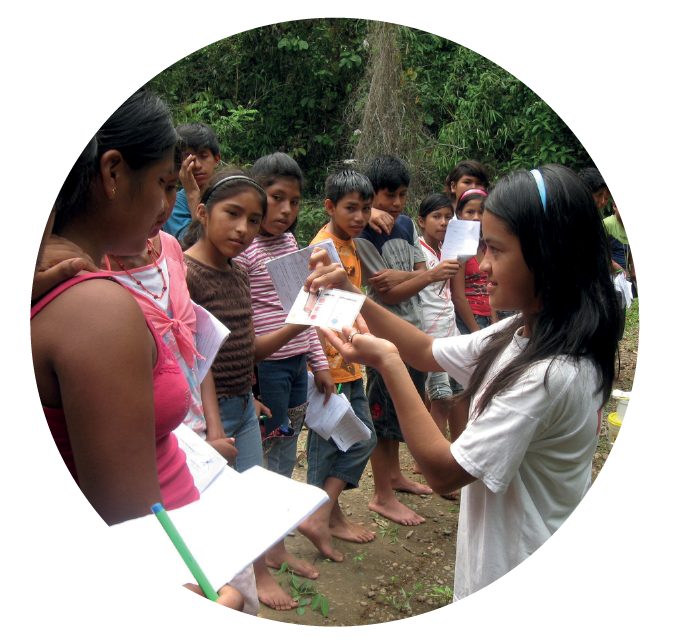
SECONDARY SCHOOL LEVEL
- 6,473 high school students participated and went out to the field to assess the quality of the water in their rivers and streams.
- 190 high school teachers participated with their students
- 229 field trips with high school students!
- 46 secondary schools have participated. 36 schools in Madre de Dios and 10 in Cusco.
- 50% of participants, did NOT know that there are organisms like macro-invertebrates living in streams.
- 93% of students and 100% of teachers rate the project as a very good / excellent educational opportunity.
- 91,600 bugs (Macroinvertebrates) have been counted and identified at the order level by high school students.
UNIVERSITY LEVEL
- 3 Universities carry out research: UNAMAD-Madre de Dios, UNSAAC – Cusco and Madre de Dios and UNMSM-Lima.
- 7 teachers and 61 university students have participated
- 19 university students have completed pre-professional internships, earning university credits as part of their academic training.
- 3 Biologists graduated professionally from UNMSM-Lima and 2 Forest Engineers from UNAMAD and UNSAAC-Madre de Dios, with theses done within the program. 2 more thesis students await university degree support.
- 1 Biologist at UNMSM-Lima specializing with macroinvertebrates for their Master’s degree in zoology
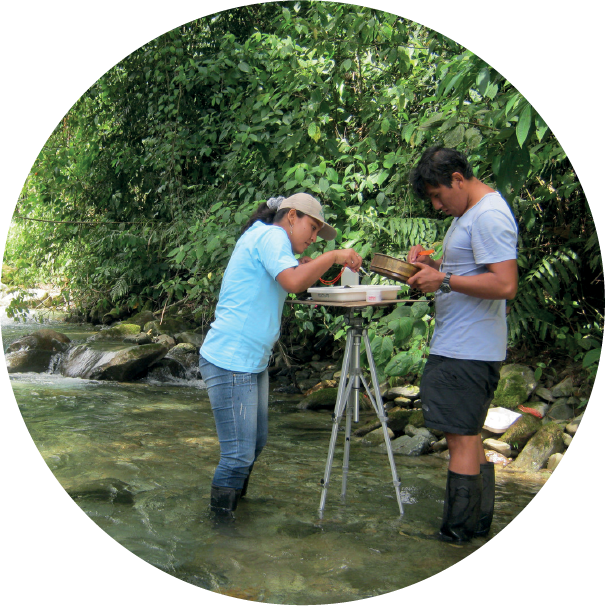
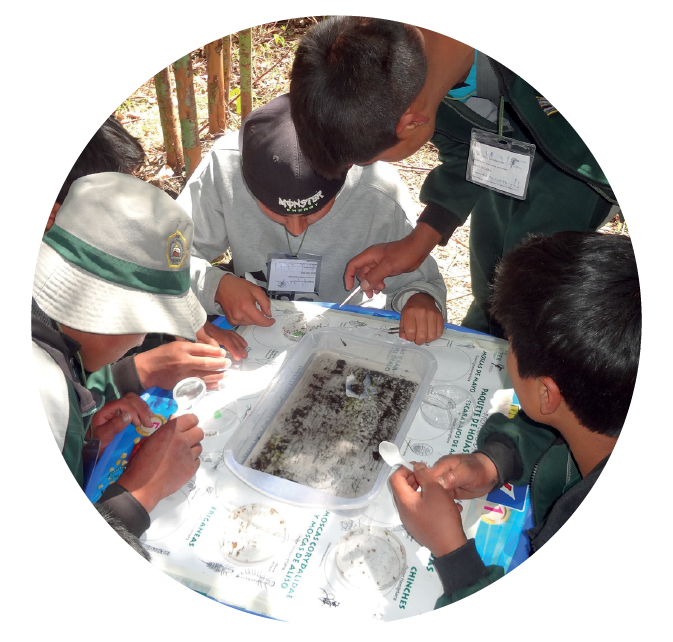
SCIENTIFIC LEVEL
- 1 new genus and species of water beetle has been described for science in 2018
- 3 new records of water Coleoptera (beetles) reported for Perú in 2011
- 3 new Diptera records (flies and mosquitoes) reported for Madre de Dios and a new one for Perú in 2017
- 6 new records of genera of Ephemeroptera (May flies) for Perú in 2019.
- 1 Taxonomic key to nymphs of Ephemeroptera (Insecta) from southeastern Perú in 2019.
- The program has been presented at more than 10 different scientific and educational conferences in Perú, Brazil, Colombia, Argentina, Canada, the United States, Mexico and Ecuador.
This is an original project through ACEER with input from the Leaf Pack Network and Stroud Water Research Center, along with collaboration with numerous national and international research institutions.
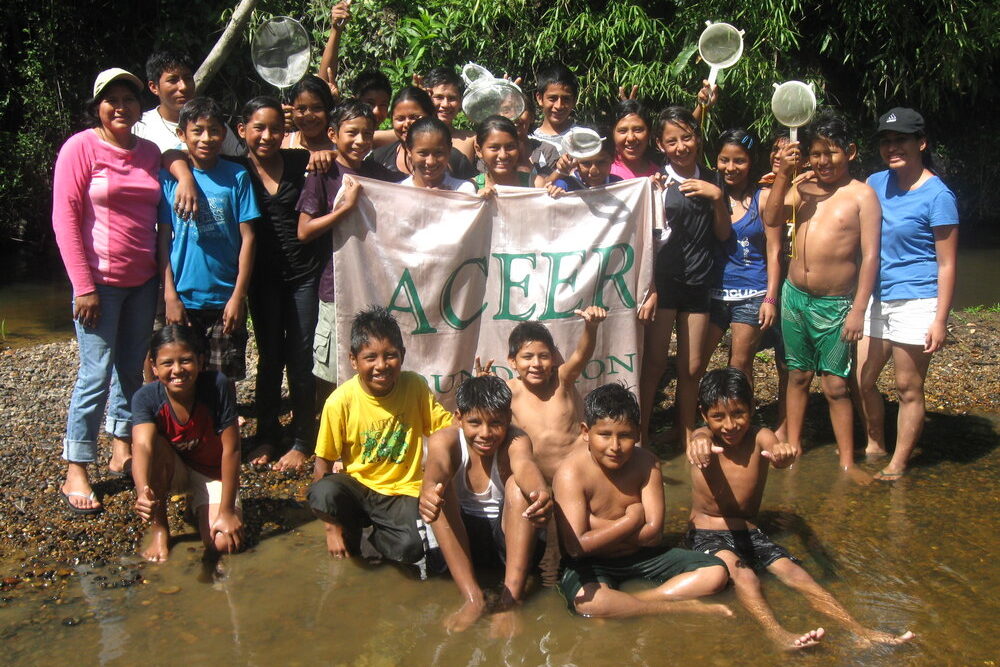
DONATE
Support the “Leaf Pack” Stream Ecology directly by making a charitable donation to the ACEER today!

FOLLOW US ON SOCIAL MEDIA!
Follow us on social media to learn more ACEER’s programs and efforts to empower and educate the conservation leaders of today and tomorrow!
